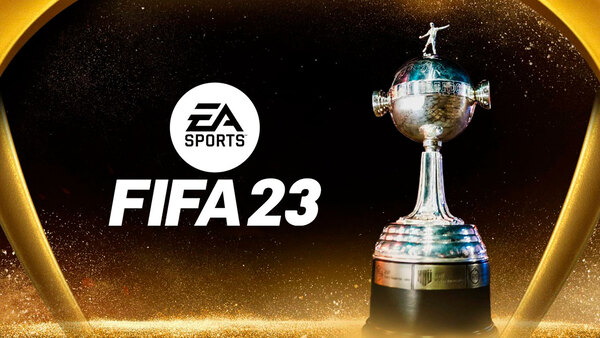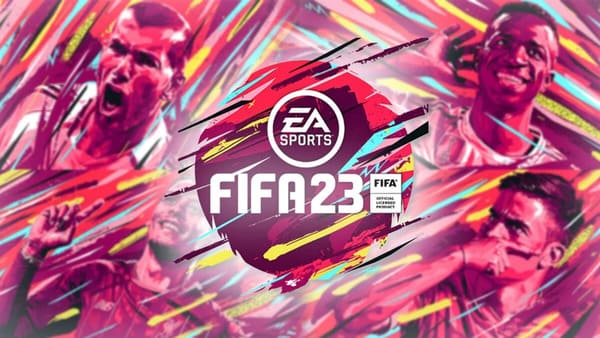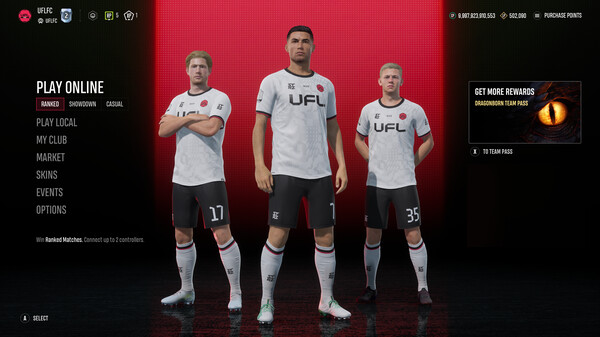FIFA 23, the latest installment in EA Sports' long-running football series, has become one of the most popular and successful video games worldwide. With its realistic graphics, expansive modes, and improved gameplay mechanics, it continues to capture the attention of football fans and gamers alike. However, one issue has persisted over the years and remains a major point of contention among the player base—microtransactions, specifically in the Ultimate Team (FUT) mode.
Ultimate Team has become the cornerstone of FIFA's monetization strategy, offering players the chance to build and manage their dream football teams. But the introduction of microtransactions, specifically in the form of FIFA Points and loot boxes, has led to widespread dissatisfaction. Players have raised concerns about the game’s monetization model, the fairness of the system, and its impact on the overall player experience. This article delves into the issue of microtransactions in FIFA 23, exploring how they have evolved, their impact on gameplay, and the resulting backlash from the community.

The Evolution of Microtransactions in FIFA: From Add-ons to Core Mechanics
The Birth of Microtransactions in FIFA
Microtransactions first appeared in FIFA with the introduction of the Ultimate Team mode in FIFA 09. Initially, the system was simple, offering players the ability to purchase packs containing random players and items using in-game currency. While it was not a major part of the gameplay experience, it marked the beginning of EA's push toward monetizing FUT.
Over the years, microtransactions became more prominent in FIFA. What started as optional purchases for cosmetic items soon evolved into a significant revenue stream for EA Sports. By FIFA 16, the system had expanded, and the inclusion of FIFA Points—purchasable with real money—became a cornerstone of the Ultimate Team experience. From there, microtransactions gradually became more integrated into the game, often influencing both the pace and the accessibility of FUT.
The Integration of FIFA Points and Loot Boxes
In FIFA 23, microtransactions are more prominent than ever before. FIFA Points, which can be purchased with real-world money, allow players to buy packs containing random players, consumables, and other items in FUT. Loot boxes, while not explicitly labeled as such, follow the same principles: players pay for a chance to receive valuable cards that can strengthen their teams.
This shift toward loot boxes and randomized rewards has created an environment where players are incentivized to spend real money in hopes of acquiring better players or rare items. The problem arises when the system feels like it rewards players with deep pockets, creating a competitive advantage for those willing to spend more money, rather than purely relying on skill or effort.
The Impact of Microtransactions on Gameplay and Balance

Pay-to-Win vs. Skill-Based Progression
One of the most significant issues surrounding FIFA 23's microtransactions is the tension between "pay-to-win" mechanics and skill-based progression. In FUT, the best players, high-rated cards, and rare items can often be obtained more quickly by spending real money, leaving players who choose not to purchase FIFA Points at a distinct disadvantage.
While FIFA 23 still offers the ability to earn rewards through in-game effort, the grind to get better players without spending money is extensive. The amount of time required to acquire top-tier cards, or to pack a player who will elevate the team, is discouraging for many. This creates an environment where players can buy their way to success, often resulting in frustration for those who are unable or unwilling to spend money.
Impact on the Competitive Integrity of FUT
The pay-to-win nature of FIFA 23’s microtransactions has led to concerns about the competitive integrity of the game. FUT is meant to be a mode that allows players to build their dream teams, but with the proliferation of microtransactions, the playing field is far from level. Players who spend money to obtain rare items and high-rated cards have a distinct advantage over those who are grinding away in-game.
This issue becomes even more apparent during online play, where players face off against each other in competitive matches. Those with better teams, often made possible by purchasing packs, have a clear edge. This undermines the meritocratic nature of competitive gaming, as the outcome of a match can often feel predetermined by the amount of money spent, rather than the skill of the players involved.
The Psychological Impact of Loot Boxes

The Gambler's Fallacy and the Thrill of Opening Packs
Loot boxes in FIFA 23 are designed to tap into the psychology of gambling. Players are encouraged to buy packs for a chance at receiving rare players, which can improve their FUT squad or provide financial rewards through the transfer market. This creates a sense of anticipation, as players are never guaranteed to get what they want, but the possibility of pulling a high-rated card is enough to keep them buying packs.
The randomness of loot boxes plays on the gambler's fallacy, where players continue spending money in hopes of eventually getting a "lucky" pack that contains the player or item they desire. This creates a cycle of frustration and hope, pushing players to spend more money, despite the odds being stacked against them. This behavior can be particularly harmful for younger players, who may not fully understand the implications of spending real money on virtual rewards.
The Pressure to Keep Up with the Meta
Another psychological effect of microtransactions in FIFA 23 is the pressure to keep up with the ever-changing "meta" in FUT. The meta refers to the most popular and effective player combinations, strategies, and tactics at any given time. As new players and items are released through packs, players are encouraged to spend money to obtain the latest and most powerful cards, in order to stay competitive.
This creates a situation where players feel they must constantly invest in microtransactions in order to keep their teams up-to-date and competitive. For many, this means that the joy of the game is replaced by the pressure to spend money to stay relevant in a fast-paced, ever-evolving mode.
The Backlash: Community Reactions and Criticisms
Complaints of Unfair Monetization
The introduction and evolution of microtransactions in FIFA 23 have led to widespread criticism from the player community. One of the main complaints is that the game incentivizes players to spend money rather than rewarding effort and skill. Many players argue that the monetization model undermines the core values of football and the spirit of fair competition, where success should be determined by the player's ability, rather than their willingness to spend money.
The concept of pay-to-win has left a sour taste in the mouths of many FIFA fans. While some may be willing to spend money on packs for a chance at upgrading their teams, the system has become increasingly difficult to justify for those who simply want to enjoy the game without feeling pressured to buy FIFA Points.
The Outcry from Content Creators and Influencers
Content creators and influencers within the FIFA community have also voiced their dissatisfaction with the microtransaction model. Many of them have pointed out that the overwhelming focus on FUT as the game’s primary mode has led to an imbalance in the overall gameplay experience. These influencers argue that the continued reliance on microtransactions not only damages the integrity of the game, but it also affects the community’s enjoyment, as the focus shifts away from skill-based play to purchasing the best cards.
EA Sports' Response: Balancing Monetization with Player Satisfaction
EA's Attempts to Address Concerns
In response to the growing backlash, EA Sports has made some adjustments to the microtransaction system in FIFA 23. They’ve introduced a number of ways to earn FUT rewards without spending money, including limited-time events, objectives, and challenges. However, many players feel that these changes don't go far enough in addressing the core issue of pay-to-win mechanics.
EA Sports has also emphasized the importance of "player choice," giving players the option to purchase FIFA Points for packs while still allowing them to earn rewards through gameplay. While these changes are a step in the right direction, the underlying concern remains—does EA truly believe in providing a level playing field for all players, or is the focus solely on maximizing revenue?
The Ongoing Struggle to Balance Monetization and Enjoyment
The challenge for EA Sports moving forward is to find a balance between monetizing FIFA 23 and ensuring that the game remains fun and fair for all players. While microtransactions are a key revenue source, EA must listen to player feedback and create a system that allows everyone to enjoy the game without feeling pressured to spend money to be competitive.
Conclusion: A Divisive Issue in the FIFA Community
Microtransactions in FIFA 23, particularly in the Ultimate Team mode, have sparked considerable debate within the gaming community. While EA Sports has attempted to address player concerns, the integration of FIFA Points, loot boxes, and the pay-to-win model has created significant issues for many players. The tension between skill-based progression and the allure of spending money for better players has led to a fractured player base, with many feeling disenfranchised by the game’s monetization strategies.
As EA Sports continues to refine FIFA 23 and future releases, it will be crucial to find a way to balance monetization with player enjoyment. Microtransactions should enhance the experience, not detract from it, and EA must ensure that all players, regardless of their financial investment, can enjoy the game on a level playing field.

























